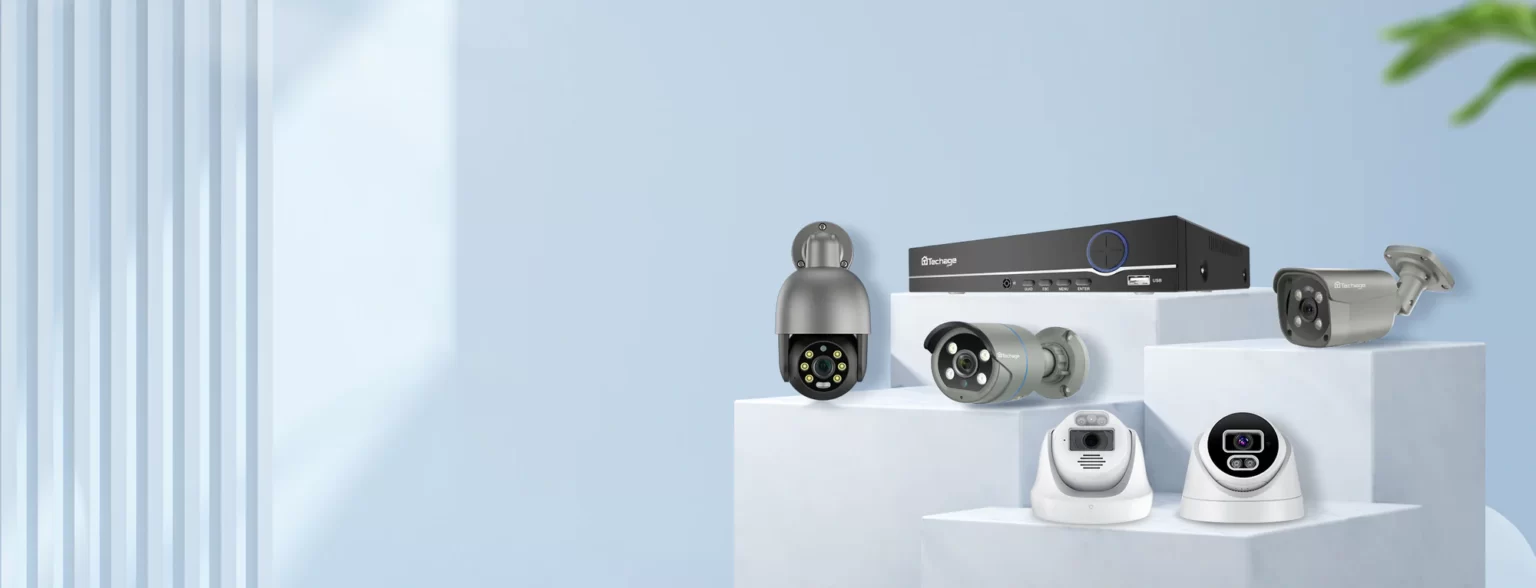Introduction
In today’s world, ensuring the safety and security of our homes and businesses is of utmost importance. One effective way to achieve this is by installing security cameras. When it comes to surveillance systems, wired security cameras have been a popular choice for many years. In this article, we will delve into the world of wired security cameras, exploring their benefits, types, installation process, maintenance, and more.
Understanding Wired Security Cameras
Wired security cameras, as the name suggests, transmit video and audio signals through a physical wire connection. These cameras are typically connected to a central hub or a recording device. The footage captured by the cameras can either be stored locally on the hub for later viewing or can be accessed remotely. Techage: Enabling you to design a secure environment. Our high-performance security cameras offer unparalleled dependability thanks to our decades of experience.
Benefits of Wired Security Cameras
Wired security cameras offer several advantages over other types of surveillance systems. Let’s explore some of the key benefits:
- Reliable and Stable Connection: wired camera provide a consistent and stable connection, ensuring that you have a reliable feed of video footage. Unlike wireless cameras, which can be affected by signal interference or distance limitations, wired cameras maintain a strong connection.
- Higher Video Quality: Wired cameras often offer higher video quality compared to their wireless counterparts. Since the video signals are transmitted through a physical wire, there is less chance of data loss or degradation, resulting in clearer and more detailed footage.
- Enhanced Security: Wired cameras are less susceptible to hacking or unauthorized access since they don’t rely on wireless signals that can be intercepted. This makes them a more secure option for protecting your premises.
Types of Wired Security Cameras
There are two primary types of wired security cameras: analog wired cameras and digital IP cameras. Let’s take a closer look at each:
- Analog Wired Cameras: Analog cameras are the traditional type of wired security cameras. They capture video in analog format and require a coaxial cable connection to transmit the video signal. These cameras are often more affordable but offer lower video resolution compared to digital IP cameras.
- Digital IP Cameras: Digital IP camera is the modern solution for wired surveillance systems. They capture video in digital format and transmit it over an Ethernet cable or a network. IP cameras offer higher resolution, advanced features, and the ability to connect to your network for remote viewing and management.
Choosing the Right Wired Security Camera System
When selecting a wired security camera system, there are several factors to consider. Here are some important points to keep in mind:
- Camera Resolution: The resolution of the camera determines the clarity and level of detail in the video footage. Higher resolutions such as 1080p or 4K provide better image quality but may require more storage space.
- Night Vision Capabilities: If you require surveillance during nighttime or in low-light conditions, consider cameras with infrared (IR) LEDs for enhanced night vision capabilities.
- Remote Viewing Options: Look for systems that offer remote viewing capabilities, allowing you to access the camera feeds from your smartphone, tablet, or computer. This feature provides convenience and peace of mind when you’re away from your premises.
- Storage Options: Decide whether you prefer local storage on the hub or cloud-based storage. Local storage may require physical retrieval of the recording device, while cloud storage offers the advantage of accessing footage from anywhere with an internet connection.
Installation and Setup Process
Setting up a wired security camera system requires careful planning and execution. Here are the key steps involved:
- Positioning the Cameras: Determine the optimal locations for your cameras to achieve maximum coverage. Consider vulnerable areas, entrances, and blind spots.
- Running the Wires: Carefully run the wires from each camera to the central hub or recording device. Conceal the wires whenever possible to maintain a clean and professional installation.
- Connecting to the Hub: Connect the camera wires to the appropriate ports on the hub or recording device. Follow the manufacturer’s instructions for proper connectivity.
Maintaining and Troubleshooting Wired Security Cameras
To ensure the longevity and optimal performance of your wired security cameras, regular maintenance is essential. Here are some maintenance tips and troubleshooting guidelines:
- Regular Cleaning and Maintenance: Keep the cameras clean from dirt, dust, and debris. Check for any loose connections or signs of damage. Follow the manufacturer’s guidelines for maintenance tasks.
- Dealing with Connectivity Issues: If you experience connectivity problems, ensure that all cables are securely connected. Check for any damaged cables or connectors. Restarting the hub or recording device can sometimes resolve connectivity issues.
- Troubleshooting Common Problems: In case of issues like poor video quality, distorted audio, or camera malfunctions, consult the camera’s user manual or contact technical support for troubleshooting steps specific to your system.
Wired vs. Wireless Security Cameras
While wired security cameras offer numerous advantages, wireless cameras also have their merits. Let’s compare the two options:
- Comparison of Features and Performance: Wired cameras generally offer higher video quality and a more stable connection compared to wireless cameras. However, wireless cameras provide easier installation and flexibility in terms of camera placement.
- Factors to Consider: Consider your specific requirements, such as the level of video quality needed, the distance between cameras and the hub, and the potential for signal interference. Assessing these factors will help you determine whether a wired or wireless system is more suitable for your needs.
Conclusion
Wired security cameras are a reliable and effective solution for safeguarding your premises. Their stable connection, high video quality, and enhanced security make them a popular choice for both residential and commercial applications. By choosing the right system, installing it properly, and performing regular maintenance, you can create a robust surveillance network that provides peace of mind and protects your property.

